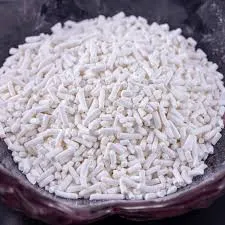
citric acid a preservative
Citric Acid as a Preservative An Overview
In our quest for longer-lasting food products, the role of preservatives has become increasingly significant. One such preservative that often goes unnoticed is citric acid. Although primarily recognized as a natural flavoring agent found in citrus fruits, citric acid has proven to be an effective preservative, offering numerous advantages for both food manufacturers and consumers.
What is Citric Acid?
Citric acid is a weak organic acid with the chemical formula C6H8O7. It occurs naturally in various fruits, especially citrus fruits like lemons, limes, and oranges. Beyond its culinary applications, citric acid is widely used in the food industry for its preservative qualities, antioxidant properties, and as an acidulant, which enhances the flavor and stability of food products.
How Does Citric Acid Work as a Preservative?
Citric acid acts as a preservative primarily through its ability to lower the pH of food products. Most pathogens and spoilage bacteria thrive in neutral to slightly alkaline environments. By lowering the pH, citric acid creates an environment in which these microorganisms cannot easily survive or reproduce. This inhibition of bacterial growth helps extend the shelf life of various foods, from canned vegetables to sauces and dressings.
In addition to lowering pH, citric acid also exhibits antioxidant properties, which can slow down the oxidation process that leads to rancidity in fats and oils, and browning in fruits and vegetables. This dual action—acting both as an antimicrobial agent and an antioxidant—makes citric acid particularly valuable in preserving a wide array of food products.
Benefits of Using Citric Acid as a Preservative
1. Natural Source Since citric acid is derived from citrus fruits, it is considered a natural preservative. Consumers growing more health-conscious are increasingly favoring natural ingredients over synthetic ones, making citric acid an attractive option for food manufacturers.
citric acid a preservative

2. Versatility Citric acid can be used in a wide range of food products, including beverages, canned foods, jams, jellies, salad dressings, and confectioneries. Its ability to enhance flavor while preserving freshness makes it a multifunctional ingredient.
3. Safety Citric acid is recognized as safe by food safety authorities, including the U.S. Food and Drug Administration (FDA). Its long history of use in food products reflects its safety and effectiveness as a preservative.
4. Cost-Effectiveness Compared to many synthetic preservatives, citric acid is generally less expensive, making it a cost-effective solution for food manufacturers looking to optimize their production processes without compromising on quality.
5. Environmental Impact As a naturally occurring substance, citric acid is biodegradable, contributing to a lower environmental footprint compared to some synthetic preservatives that may not break down as readily in the environment.
Using Citric Acid in the Food Industry
The food industry utilizes citric acid in various applications. In beverages, it is often used to stabilize the acidity and enhance flavor, while in canned goods, it helps prevent the growth of microorganisms during storage. Bakeries might incorporate citric acid in dough to improve texture and promote leavening.
However, it's important for food manufacturers to use citric acid judiciously. Excessive amounts can alter the taste of foods, imparting an overly sour flavor that may be undesirable to consumers. Hence, precise measurements and testing are essential to balance preservation and palatability.
Conclusion
Citric acid stands out as an essential preservative in the food industry. Its natural origins, combined with its effectiveness in preventing microbial growth and oxidation, position it favorably among both manufacturers and consumers. With rising demand for clean-label and natural products, citric acid is expected to continue playing a pivotal role in food preservation. As we move towards more sustainable practices, keeping citric acid as a key ingredient could serve the dual purpose of ensuring food safety while catering to health-conscious consumers. In summary, citric acid is not just a flavor enhancer but also a vital preservative, contributing significantly to the quality and longevity of our food supply.
-
Comprehensive Guide to Acetic Acid as Preservative: Benefits, Uses & Future TrendsNewsNov.24,2025
-
What Is a Food Additive? Global Insights, Applications & Future TrendsNewsNov.24,2025
-
968 Sweetener: The Modern Solution for Health-Conscious SweeteningNewsNov.23,2025
-
Discover the Benefits and Uses of 965 Sweetener (Erythritol) | Tenger ChemicalNewsNov.23,2025
-
961 Sweetener - A Next-Gen Sugar Alternative for Health and IndustryNewsNov.23,2025
-
Understanding 960 Sweetener: The Modern Sugar Alternative for Health and IndustryNewsNov.22,2025
-
Everything You Need to Know About 955 950 Sweeteners – Benefits, Uses, and TrendsNewsNov.22,2025
Hebei Tenger Chemical Technology Co., Ltd. focuses on the chemical industry and is committed to the export service of chemical raw materials.
-

view more DiethanolisopropanolamineIn the ever-growing field of chemical solutions, diethanolisopropanolamine (DEIPA) stands out as a versatile and important compound. Due to its unique chemical structure and properties, DEIPA is of interest to various industries including construction, personal care, and agriculture. -

view more TriisopropanolamineTriisopropanolamine (TIPA) alkanol amine substance, is a kind of alcohol amine compound with amino and alcohol hydroxyl, and because of its molecules contains both amino and hydroxyl. -

view more Tetramethyl Thiuram DisulfideTetramethyl thiuram disulfide, also known as TMTD, is a white to light-yellow powder with a distinct sulfur-like odor. It is soluble in organic solvents such as benzene, acetone, and ethyl acetate, making it highly versatile for use in different formulations. TMTD is known for its excellent vulcanization acceleration properties, which makes it a key ingredient in the production of rubber products. Additionally, it acts as an effective fungicide and bactericide, making it valuable in agricultural applications. Its high purity and stability ensure consistent performance, making it a preferred choice for manufacturers across various industries.





